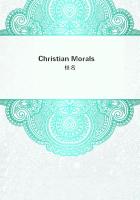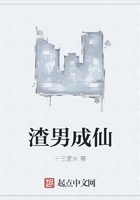I do not read that he made many roads, or effected important internal improvements. The age was too barbarous for the development of national industries,--one of the main things which occupy modern statesmen and governments. But whatever he did was wise and enlightened. He rewarded merit; he made an alliance with learned men; he sought out the right men for important posts; he made the learned Alcuin his teacher and counsellor; he established libraries and schools; he built convents and monasteries; he gave encouragement to men of great attainments; he loved to surround himself with learned men; the scholars of all countries sought his protection and patronage, and found him a friend. Alcuin became one of the richest men in his dominions, and Englebert received one of his daughters in marriage. Napoleon professed a great admiration for Charlemagne, although Frederic II. was his model sovereign. But how differently Napoleon acted in this respect!
Napoleon was jealous of literary genius. He hated literary men.
He rarely invited them to his table, and was constrained in their presence. He drove them out of the kingdom even. He wanted nothing but homage,--and literary genius has no sympathy with brute force, or machinery, or military exploits. But Charlemagne, like Peter the Great, delighted in the society of all who could teach him anything. He was a tolerably learned man himself, considering his life of activity. He spoke Latin as fluently as his native German, and it is said that he understood Greek. He liked to visit schools, and witness the performances of the boys; and, provided they made proficiency in their studies, he cared little for their noble birth. He was no respecter of persons. With wrath he reproved the idle. He promised rewards to merit and industry.
The most marked feature of his reign, outside his wars, was his sympathy with the clergy. Here, too, he differed from Napoleon and Frederic II. Mr. Hallam considers his alliance with the Church the great error of his reign; but I believe it built up his throne. In his time the clergy were the most influential people of the Empire and the most enlightened; but at that time the great contest of the Middle Ages between spiritual and temporal authority had not begun.
Ambrose, indeed, had rebuked Theodosius, and set in defiance the empress when she interfered with his spiritual functions; and Leo had firmly established the Papacy by emphasizing a divine right to his decrees. But a Hildebrand and a Becket had not arisen to usurp the prerogatives of their monarchs. Least of all did popes then dream of subjecting the temporal powers and raising the spiritual over them, so as to lead to issues with kings. That was a later development in the history of the papacy. The popes of the eighth and ninth centuries sought to heal disorder, to punish turbulent chieftains, to sustain law and order, to establish a tribunal of justice to which the discontented might appeal. They sought to conserve the peace of the world. They sought to rule the Church, rather than the world. They aimed at a theocratic ministry,--to be the ambassadors of God Almighty,--to allay strife and division.
The clergy were the friends of order and law, and they were the natural guardians of learning. They were kindness itself to the slaves,--for slavery still prevailed. That was an evil with which the clergy did not grapple; they would ameliorate it, but did not seek to remove it. Yet they shielded the unfortunate and the persecuted and the poor; they gave the only consolation which an iron age afforded. The Church was gloomy, ascetic, austere, like the cathedrals of that time. Monks buried themselves in crypts;they sang mournful songs; they saw nothing but poverty and misery, and they came to the relief in a funereal way. But they were not cold and hard and cruel, like baronial lords. Secular lords were rapacious, and ground down the people, and mocked and trampled upon them; but the clergy were hospitable, gentle, and affectionate.
They sympathized with the people, from whom they chiefly sprang.
They had their vices, but those vices were not half so revolting as those of barons and knights. Intellectually, the clergy were at all times the superiors of these secular lords. They loved the peaceful virtues which were generated in the consecrated convent.
The passions of nobles urged them on to perpetual pillage, injustice, and cruelty. The clergy quarrelled only among themselves. They were human, and not wholly free from human frailties; but they were not public robbers. They were the best farmers of their times; they cultivated lands, and made them attractive by fruits and flowers. They were generally industrious;every convent was a beehive, in which various kinds of manufactures were produced. The monks aspired even to be artists. They illuminated manuscripts, as well as copied them; they made tapestries and beautiful vestments. They were a peaceful and useful set of men, at this period, outside their spiritual functions; they built grand churches; they had fruitful gardens;they were exceedingly hospitable. Every monastery was an inn, as well as a beehive, to which all travellers resorted, and where no pay was exacted. It was a retreat for the unfortunate, which no one dared assail. And it was vocal with songs and anthems.















